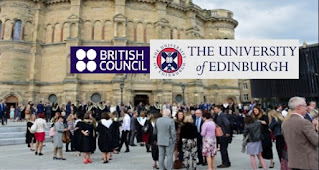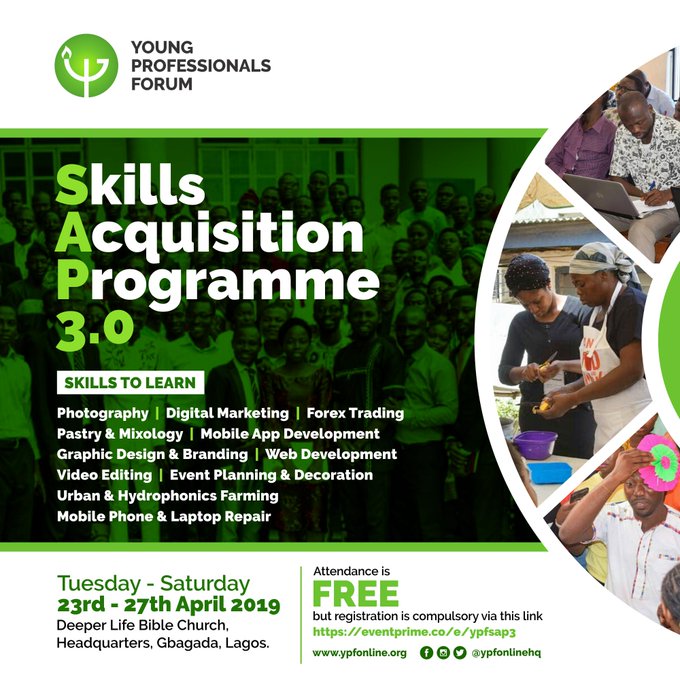British Council Decolonising Digital fellowship 2021 at the University of Edinburgh for Early-Career Researchers from Africa
The British Council, in partnership with the Institute for Advanced Studies in the Humanities (IASH) at the University of Edinburgh, has developed a bespoke fellowship opportunity for early-career researchers from Africa who are living and working on the continent.
The successful candidate will undertake a 7 month research fellowship based with IASH at the University of Edinburgh, starting in April 2021. They will receive a stipend of £1,300 per month, a £1,000 travel grant and assistance with the UK visa application process and costs.
During their fellowship they will work closely with British Council experts in the UK and Africa to refine and shape the direction of their research and its outputs. There will be further opportunities to share, disseminate and apply the findings of the research in collaboration with the British Council in Africa once the fellowship is completed.
Study objectives
The fellowship will focus on decolonising digital in the context of cultural and creative production and consumption in Africa and consumption of content originating from Africa in the UK and elsewhere in the world.
The fellow will be part of the lively international and interdisciplinary scholarly community at IASH and benefit from the opportunities this affords for intellectual exchange and peer support.
The collaboration with the British Council extends these opportunities by enabling access to the professional expertise of the British Council staff and stakeholders involved, bringing valuable insight into the perspectives of cultural relations practitioners and policy makers in the UK and Africa and across the British Council’s global network.
The research fellow will be expected to work with British Council experts and external stakeholders to inform and shape best practice in digital cultural relations between the UK and Africa, and to promote through their research and engagement enhanced awareness and cultural fluency in relation to themes such as decolonisation, inclusivity and digital innovation.
The fellow will engage closely with the British Council’s New Narratives programme. This is a major initiative launching in April 2021 to foster deeper and more meaningful engagements between young people across the countries of Africa and the UK.
The programme provides an excellent pathway to help guide and shape the fellow’s engagement with key audiences and stakeholders in the UK and Africa and to relate the research to wider initiatives that aim to promote more forward-looking approaches in the UK’s social, cultural and economic interactions with Africa.
As part of the application process candidates will be expected to propose how they would develop the research theme in line with both the British Council strategic interests and their own academic expertise. The final focus of the research will be further refined once the successful candidate has been selected and as the fellowship gets underway.
Qualifications required
This fellowship is open to early-career researchers who are citizens of any African country AND resident on the continent. The other standard eligibility criteria for IASH Postdoctoral Fellowship programmes apply. In addition, applicants must have:
a research and/or professional background that relates to the core areas of British Council programming and strategic engagement: Culture and Creative Industries, Education, Inclusive Communities, and International Cultural Relations more broadly
an interest in and understanding of digital technologies and platforms and in debates around digital access and inclusivity
experience of engaging non-academic audiences and stakeholders in research (e.g. through engagement with policy makers, practitioners, artists or broad public audiences)
commitment to professional development and a clear understanding of how the fellowship will support this
clear commitment to knowledge sharing and the development of best practice beyond the timeframe of the fellowship itself, based on the networks, insights and learnings developed through their research.
Outputs and deadlines
- the fellowship will be undertaken from April to October 2021
- the fellow will be expected and encouraged to work on academic research outputs (e.g. journal articles, conference papers) drawing on the supportive research environment and networking opportunities of IASH
- in addition, a range of deliverables will be agreed with the British Council that will be targeted at British Council audiences and stakeholders (both internal and external)
- these will include staff talks and workshops and a short and accessible paper for an informed but non-expert audience
- we are particularly interested in working with the fellow to develop ideas for creative outputs relating to the fellowship (e.g. films, video-games, artistic performance, apps, interactive web-based outputs)
- we welcome innovative and participatory approaches to engage broad public audiences in the research, in the UK and across the African continent and beyond
- a detailed plan for the production and dissemination of research outputs will be agreed between the British Council, IASH and the research fellow once the fellowship is underway.
How to Apply for British Council Decolonising Digital fellowship 2021 at the University of Edinburgh for Early-Career Researchers from Africa
Read the full Decolonising Digital fellowship outline available for download below. There are two stages to the application process.
Stage 1
To initiate the application process, please submit the following documents to James.Perkins@britishcouncil.org by the deadline of 24:00 on Sunday 10 January 2021:
- research proposal (up to 3 pages max)
- CV (up to 3 pages max)
- names, job titles and contact details of two referees who may be contacted by the British Council later in the application process.
Your research proposal should:
outline your motivation for applying and your interest in engaging with IASH and the British Council specifically
detail how you intend to approach and develop the research theme for the fellowship and outline your initial ideas around potential research outputs
explain how this complements your research interests, background and expertise and supports your professional development goals and future plans
indicate any existing connections or experience of collaborating with IASH and/or the British Council.
Applications will be reviewed by the British Council. Applicants who demonstrate the strongest fit to the above Study objectives and Qualifications required (as judged by a review panel) will be invited to proceed to the next stage.
Stage 2:
At this stage, applicants will be given the opportunity to join a call with relevant British Council staff in order to get feedback on their research proposals and discuss any queries about the research context for the fellowship. They will then be asked to refine and develop their proposals and to submit revised versions by 24:00 on Sunday 14 February 2021.
Following further review of these revised proposals by the British Council in consultation with IASH, applicants whose proposals are ranked highest will be invited to interview (via video-conferencing or in person at a British Council office in Africa if feasible). A final decision on the award of the fellowship will be made by the end of February 2021.
Timetable
- initial application deadline: Sunday 10 January 2021 (24:00 UK time)
- review and feedback: from 11 January – 29 January 2021
- revised proposal deadline: Sunday 14 February 2021 (24:00 UK time)
- further review and interviews: from 15 February – 26 February 2021
- fellowship awarded: by end of February 2021
- fellowship start date: from Monday 5 April 2021
- fellowship end date: Sunday 31 October 2021.
Downloads
For more Information: Visit the webpage for British Council Decolonising Digital fellowship 2021 at the University of Edinburgh for Early-Career Researchers from Africa




0 Comments